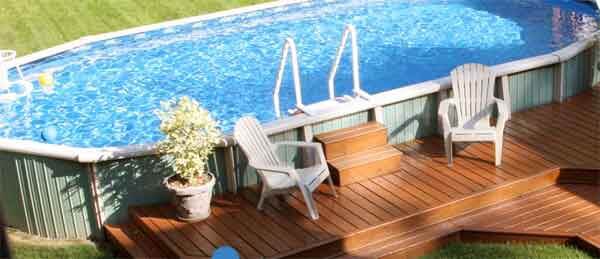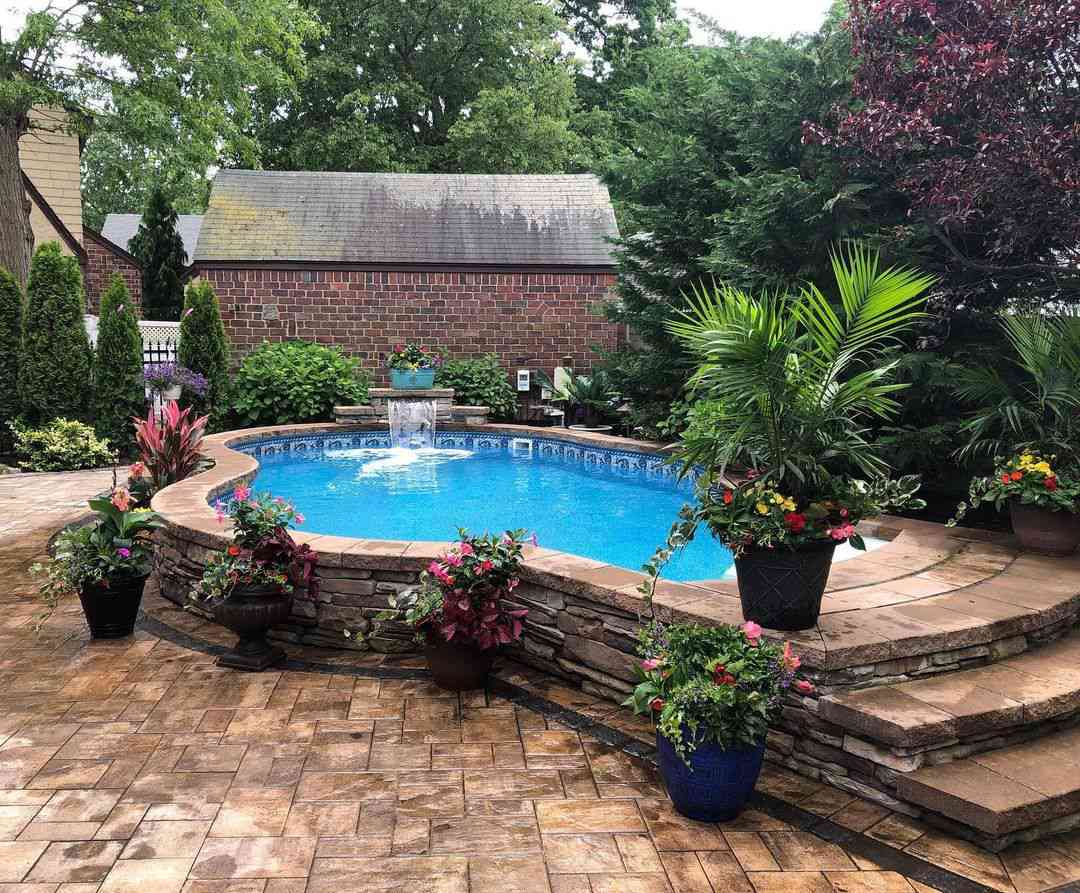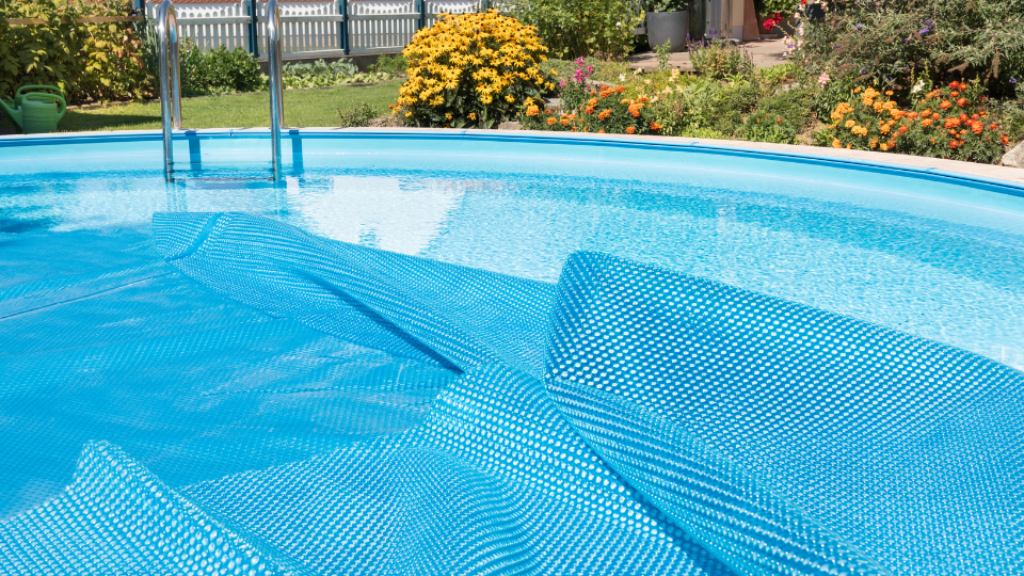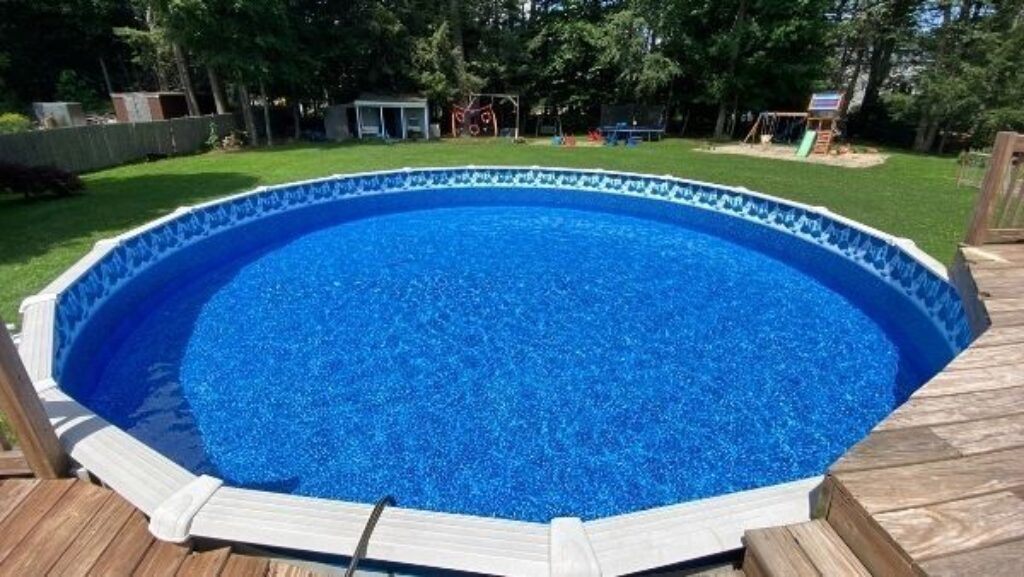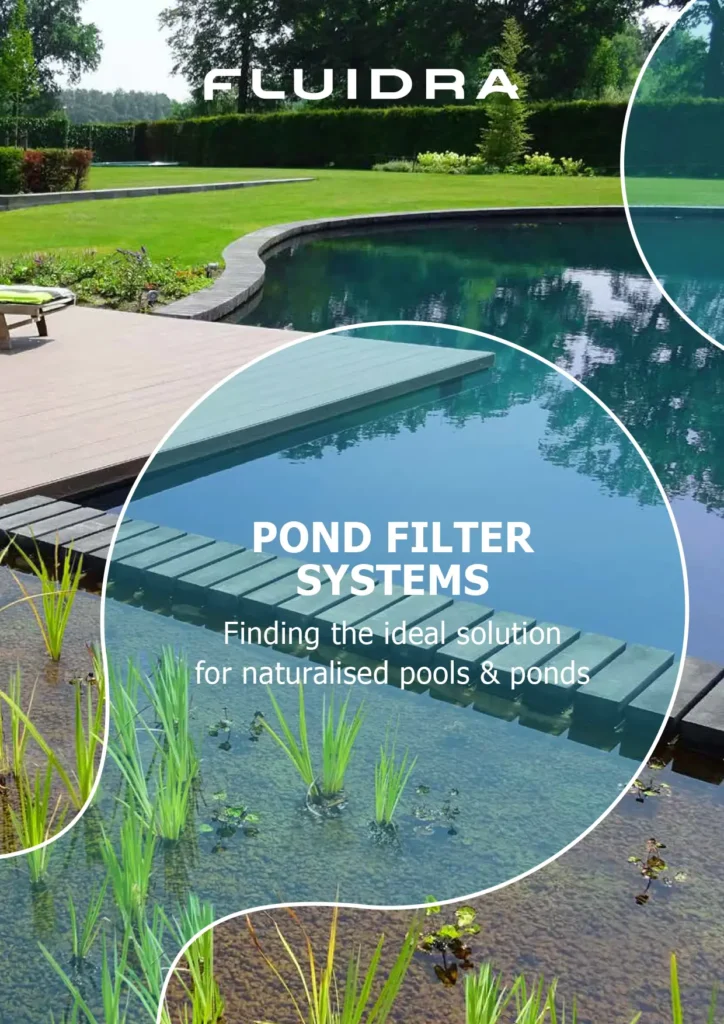Are you an above ground pool owner looking for eco-friendly solutions to maintain your pool? Look no further! In this article, we will explore sustainable pool practices that not only help protect the environment but also save you time and money. From using natural cleaning agents to implementing energy-efficient equipment, we’ve got you covered. So, let’s dive in and discover how you can enjoy your pool while making a positive impact on the planet!
Water Conservation
When it comes to water conservation, there are several strategies you can implement to ensure you are using this precious resource responsibly. One of the most effective ways to conserve water in your pool is by covering it when it’s not in use. This simple step can significantly reduce water evaporation and help maintain the pool’s water level. Whether you choose a manual pool cover or an automated one, the key is to ensure that the cover is properly fitted and provides a tight seal.
Installing a pool cover is another great option to consider. A pool cover acts as a physical barrier, preventing water evaporation while also keeping debris out of the pool. There are different types of pool covers available, including solar covers and thermal blankets. Solar covers not only conserve water but also increase the pool’s temperature by absorbing and retaining the sun’s heat. Thermal blankets, on the other hand, provide insulation and further reduce water evaporation.
Using a solar cover is another effective method of water conservation. Solar covers utilize the sun’s energy to warm the pool water while minimizing evaporation. These covers are made of durable materials that can withstand sunlight and keep the water temperature balanced. By using a solar cover, you not only save water but also reduce the need for energy-consuming heating systems.
Reducing water evaporation is crucial for water conservation. Evaporation is a natural process that occurs when the water’s surface is exposed to air. By implementing simple techniques, such as keeping the pool’s water level topped up and using a pool cover, you can significantly reduce evaporation. Additionally, adjusting the pool’s water level to the appropriate range can prevent water wastage and ensure the pool operates efficiently.
Implementing a rainwater collection system is another fantastic way to conserve water. Instead of relying solely on municipal water sources to fill up your pool and top it up throughout the season, you can harness the power of nature by collecting rainfall. Rainwater can be stored in tanks and used for various purposes, including filling up your pool. By utilizing a rainwater collection system, you not only reduce your reliance on the municipal water supply but also contribute to environmental sustainability.
Energy Efficiency
In addition to water conservation, energy efficiency is another vital aspect of maintaining an eco-friendly and sustainable above-ground pool. By implementing energy-efficient practices, you can reduce your pool’s energy consumption and, in turn, decrease your utility bills. Here are some effective strategies to achieve energy efficiency in your pool:
Switching to LED pool lights is a simple yet impactful step you can take to enhance energy efficiency. LED lights use significantly less energy compared to traditional incandescent bulbs, while still providing bright and vibrant illumination. By making the switch, you can enjoy well-lit pool surroundings while consuming a fraction of the energy.
Using energy-efficient pool pumps is another crucial element of energy efficiency. Pool pumps play a vital role in circulating and filtering the water, ensuring it remains clean and safe for swimming. By opting for energy-efficient pumps, you can reduce energy consumption without compromising the performance of your pool system. Look for pumps with variable speed options and energy-saving features to maximize efficiency.
Installing a pool timer is an effective strategy to optimize energy use. A pool timer allows you to set specific times for the pool pump, heater, and other equipment to operate. By scheduling them to run during off-peak hours or when the pool is not in use, you can minimize energy consumption and save on your utility bills.
Utilizing solar heating systems is a fantastic way to harness renewable energy and heat your pool efficiently. Solar heating systems capture the sun’s energy and use it to heat the pool water, reducing the reliance on traditional heating methods. These systems are not only environmentally friendly but also cost-effective in the long run, as they require minimal maintenance and utilize free, renewable energy.
Using energy-saving pool equipment is another important aspect of achieving energy efficiency. When purchasing pool equipment, such as filters, heaters, and chlorinators, opt for models that are specifically designed to be energy efficient. These energy-saving devices can significantly reduce your pool’s energy consumption without sacrificing performance.
This image is property of lirp.cdn-website.com.
Chemical Reduction
Eco-friendly pool practices extend beyond water conservation and energy efficiency; they also encompass the reduction of chemicals used in pool maintenance. Chemicals, such as chlorine, are commonly used to sanitize and maintain water quality in pools. However, there are several natural alternatives and sustainable techniques that can minimize the reliance on traditional chemical treatments. Here are some strategies for chemical reduction in your pool:
Utilizing natural alternatives to chlorine is an effective way to reduce chemical usage. Chlorine is a common disinfectant used in pools, but it can have negative impacts on the environment and human health. By using natural alternatives, such as mineral sanitizers or ozone-based systems, you can maintain water quality without relying solely on chlorine.
Implementing a saltwater system is another excellent option for reducing chemical usage. Saltwater pools use a chlorine generator that converts salt into chlorine, eliminating the need for regular manual chlorine additions. This system provides a more natural swimming experience with reduced chemical odors and eye irritation.
Using eco-friendly algaecides is important for minimizing the environmental impact of pool maintenance. Algaecides are chemicals used to prevent and control algae growth in pools. By choosing eco-friendly algaecides that are biodegradable and low in toxicity, you can maintain a clean and algae-free pool while minimizing the use of harmful chemicals.
Using UV or ozone treatment is another effective method of chemical reduction. UV and ozone systems utilize ultraviolet light or ozone gas to sanitize and disinfect pool water. These treatments can help reduce the reliance on traditional chemical sanitizers, making your pool more environmentally friendly.
Maintaining proper pH levels naturally is essential for chemical reduction. By using natural pH balancers, such as baking soda or borax, you can keep the pool’s pH within the optimal range without relying solely on chemical additives. Proper pH balance not only helps ensure water quality but also extends the life of pool equipment.
Sustainable Pool Construction
Sustainable pool practices begin right from the construction phase. By incorporating environmentally friendly techniques and materials, you can create a pool that not only minimizes its impact on the environment but also offers long-term benefits. Here are some strategies for sustainable pool construction:
Using environmentally friendly materials is a crucial aspect of sustainable pool construction. Opt for materials that have minimal impact on the environment and are produced using sustainable methods. For example, choose fiberglass or vinyl liner pools over traditional concrete pools, as these options require less energy and water during manufacturing and have a smaller carbon footprint.
Optimizing pool size and shape is another important consideration. Design your pool in a way that maximizes functionality while minimizing the use of resources. Avoid excessive pool sizes or complex shapes that require more materials and water to construct and operate. A well-designed, efficient pool layout can contribute to sustainability.
Installing proper insulation is essential for maintaining energy efficiency in your pool. Pool insulation can help minimize heat loss and reduce the need for continuous heating. Consider using insulating materials such as foam boards or spray foam insulation to prevent heat transfer and retain the pool’s temperature.
Implementing efficient filtration systems is crucial for sustainable pool construction. Choose filters that are designed to maximize efficiency and minimize water and energy consumption. Look for options such as cartridge filters or diatomaceous earth (DE) filters that require less frequent backwashing and reduce water wastage.
Designing for optimal water circulation is another key consideration. Proper water circulation not only enhances pool hygiene but also reduces the need for excessive chemical treatments. Incorporate features such as strategically placed return jets and water features to improve water circulation and minimize stagnant areas.
This image is property of lirp.cdn-website.com.
Sustainable Landscaping
Sustainable landscaping around your pool area can further enhance the eco-friendly practices you implement. By choosing native and drought-resistant plants, minimizing chemical usage, and implementing landscaping techniques that reduce water runoff, you can create a landscape that complements your eco-friendly pool. Here are some sustainable landscaping strategies:
Planting native and drought-resistant plants is an excellent choice for sustainable pool landscaping. Native plants are adapted to the local climate and require minimal water and maintenance. Drought-resistant plants, such as succulents and Mediterranean species, can withstand periods of drought, reducing the need for irrigation and conserving water.
Using organic fertilizers is crucial for minimizing the use of harmful chemicals in your pool landscape. Organic fertilizers, such as compost or natural plant-based fertilizers, provide essential nutrients to the soil without the negative environmental impact associated with synthetic fertilizers. These organic options promote soil health and minimize pollution.
Implementing a rain garden is an innovative way to manage stormwater runoff and reduce water pollution. A rain garden is a landscaped area designed to capture and absorb rainwater, preventing it from flowing into storm drains or bodies of water. By incorporating a rain garden near your pool, you can reduce water runoff and help recharge the groundwater table.
Creating permeable paving around the pool is another sustainable landscaping practice. Permeable pavers allow rainwater to penetrate through them, reducing runoff and preventing puddles. Choose materials such as porous concrete, gravel, or permeable interlocking pavers to promote water absorption and minimize the need for additional drainage systems.
Reducing or eliminating the use of herbicides is essential for a sustainable pool landscape. Herbicides can have harmful effects on water quality and biodiversity. Instead, opt for alternative weed control methods, such as manual removal or using natural herbicides, such as vinegar solutions or boiling water.
Water Treatment and Maintenance
Proper water treatment and maintenance practices are crucial for an eco-friendly and sustainable pool. By adopting responsible water management techniques, using eco-friendly cleaning equipment, and implementing efficient water recycling systems, you can minimize water wastage and maintain a healthy pool environment. Here are some strategies for water treatment and maintenance:
Regularly testing water quality is vital for maintaining safe swimming conditions and preventing the overuse of chemical additives. Use water testing kits or consult a professional to assess the pH balance, chlorine levels, and other parameters of your pool water. By regularly monitoring and adjusting water chemistry, you can ensure a healthy and balanced pool environment.
Implementing proper pool maintenance practices is essential for water conservation. Regularly clean the pool’s filter, skimmer, and surface to remove debris and maintain optimal water flow. Conduct routine inspections to identify and repair leaks or equipment malfunctions promptly. By addressing maintenance issues promptly, you can prevent water waste and minimize the need for excessive chemical treatments.
Using eco-friendly pool cleaning equipment is important for minimizing environmental impact. Opt for pool brushes, skimmers, and vacuums that are designed to be energy efficient and waste-reducing. Additionally, consider using automated robotic pool cleaners that operate on low voltages and reduce the reliance on manual labor and chemicals.
Implementing a backwash recycling system can significantly reduce water wastage during filter cleaning. Backwashing is a process where water is flushed through the filter to remove accumulated debris. By diverting backwash water to a recycling system, such as a holding tank or irrigation system, you can reuse the water instead of discharging it to waste.
Conserving water during pool maintenance is a proactive way to minimize wastage. Use buckets or a pool cover pump to remove leaves and debris from the pool instead of backwashing, which can lead to significant water loss. Additionally, consider using a pool cover while performing maintenance tasks to prevent evaporation and keep the pool water clean.
This image is property of www.fluidra.com.
Pool Water Management
Efficient water management is essential for sustainable pool practices. By utilizing innovative technologies, such as smart water management systems and rain sensors, and implementing water-saving pool features, you can optimize water usage and minimize waste. Here are some strategies for effective pool water management:
Implementing a pool water monitoring system allows you to closely monitor and control the pool’s water quality and usage. These systems utilize sensors and smart technology to provide real-time data on water parameters, such as pH, temperature, and chlorine levels. By having access to accurate information, you can make informed decisions and take immediate action if any issues arise.
Using smart technology for water management is an excellent way to optimize water usage. Smart controllers and automation systems can automatically adjust pool features, such as circulation pumps and filtration, based on real-time conditions and usage patterns. This ensures efficient operation and minimizes unnecessary water and energy consumption.
Installing a rain sensor can help you take advantage of nature’s water supply and reduce reliance on municipal water sources. Rain sensors detect rainfall and prevent the irrigation or filling systems from operating during wet weather conditions. By incorporating a rain sensor into your pool’s water management system, you can conserve water and minimize unnecessary watering.
Implementing water-saving pool features is another effective method of water management. Consider incorporating features such as waterfalls, fountains, or bubblers that recirculate and aerate the same water instead of using fresh water. These features not only add aesthetic appeal but also help maintain water quality and reduce the need for additional water sources.
Monitoring and reducing water loss due to leaks is crucial for sustainable pool management. Regularly inspect your pool and its components for any signs of leaks, such as water loss, wet spots, or damaged equipment. Promptly repair any leaks to prevent water waste and avoid potential damage to the pool structure or surrounding areas.
Education and Awareness
Promoting education and awareness about sustainable pool practices is essential for driving widespread adoption of eco-friendly techniques. By providing resources, organizing community events, and encouraging the sharing of sustainable pool practices, we can create a collective effort towards environmentally responsible pool ownership. Here are some strategies for education and awareness:
Promoting eco-friendly pool practices through various channels, such as social media, websites, or local publications, can help raise awareness about sustainable pool management. Share practical tips, success stories, and innovative solutions to inspire others to adopt eco-friendly practices.
Providing resources for sustainable pool management is crucial for empowering pool owners and professionals to make informed decisions. Create online guides, manuals, or video tutorials on water conservation, energy efficiency, and chemical reduction. Make these resources easily accessible so that individuals can refer to them whenever needed.
Educating pool owners about water conservation can help them understand the importance of responsible water usage and the impact of their actions. Host workshops or seminars to educate pool owners on the benefits of water conservation, effective pool cover usage, and efficient water management techniques. Provide practical demonstrations and hands-on training to promote active learning.
Organizing community events and workshops focused on sustainable pool practices can create a platform for pool owners and professionals to come together, share ideas, and learn from each other. Consider hosting local events, such as pool expos or sustainability fairs, where individuals can engage in discussions, access resources, and network with like-minded individuals.
Encouraging the sharing of sustainable pool practices is a powerful way to create a community that supports and promotes eco-friendly solutions. Create online forums or social media groups where pool owners can share their experiences, challenges, and success stories. Foster a sense of collaboration and inspire others to adopt sustainable pool practices.
This image is property of www.fluidra.com.
Pool Cover Options
Choosing the right pool cover is crucial for maximizing water conservation and energy efficiency. There are various options available, each with its unique benefits and features. Here are some popular pool cover options to consider:
Solar covers are one of the most popular choices for pool owners looking to conserve water and increase water temperature naturally. These covers are made of a special material that absorbs and retains the sun’s heat, effectively warming the pool water. Solar covers also act as a barrier, preventing water evaporation and reducing the need for chemical treatments.
Thermal blankets are another effective option for conserving water and heat. These blankets are designed to provide insulation and retain heat in the pool. Similar to solar covers, thermal blankets prevent water evaporation and maintain the pool’s temperature, reducing the need for energy-consuming heating systems.
Automatic pool covers offer convenience and efficiency. These covers are motorized and can be easily opened or closed with the push of a button. By providing a secure and tight fit, automatic pool covers prevent debris from entering the pool while minimizing water evaporation. They also act as a safety feature, preventing unauthorized access and reducing the risk of accidents.
Safety covers are specifically designed to provide a barrier that prevents accidental entry into the pool. These covers are typically made of sturdy materials, such as mesh or solid vinyl, and are anchored securely around the pool’s perimeter. Safety covers not only enhance water conservation but also promote pool safety, making them an excellent choice for families with young children or pets.
Mesh covers are another popular option for pool owners seeking a balance between water conservation and debris prevention. These covers are made of fine mesh material that allows rainwater to penetrate while preventing leaves and larger debris from entering the pool. Mesh covers are easy to install and provide a cost-effective solution for maintaining the pool’s cleanliness.
Benefits of Sustainable Pool Practices
Embracing sustainable pool practices offers numerous benefits that go beyond environmental conservation. By adopting eco-friendly solutions, you can enjoy the following advantages:
-
Reduced water consumption: Implementing water conservation strategies, such as using pool covers and rainwater collection systems, can significantly reduce water consumption. This not only helps preserve a valuable resource but also saves on water bills.
-
Lower energy costs: By implementing energy-efficient practices, such as using LED lights, energy-saving pumps, and solar heating systems, you can reduce energy consumption and lower your utility bills.
-
Chemical reduction and improved air quality: By utilizing natural alternatives to chlorine, such as mineral sanitizers or saltwater systems, you can reduce chemical usage and improve air quality around the pool. This is particularly beneficial for individuals with sensitivities or allergies.
-
Minimized environmental impact: Sustainable pool practices help minimize the environmental impact associated with pool ownership. By conserving water, reducing energy consumption, and using fewer chemicals, you contribute to a healthier ecosystem and a more sustainable future.
-
Enhanced pool longevity and performance: Proper water management, regular maintenance, and the use of eco-friendly products can extend the life of your pool and ensure its optimal performance. Sustainable practices help minimize the risk of damage, corrosion, and system failures, ultimately saving you money in the long run.
In conclusion, sustainable pool practices offer a comprehensive and eco-friendly approach to above-ground pool ownership. By implementing water conservation techniques, focusing on energy efficiency, reducing chemical usage, considering sustainable construction methods, utilizing sustainable landscaping, practicing responsible water treatment and maintenance, effectively managing pool water, promoting education and awareness, and selecting appropriate pool covers, you can enjoy the numerous benefits of a sustainable pool. Embracing eco-friendly solutions not only benefits the environment but also enhances your pool experience, reduces costs, and contributes to a more sustainable future. So start implementing these practices today and make your above-ground pool a shining example of environmental responsibility!



